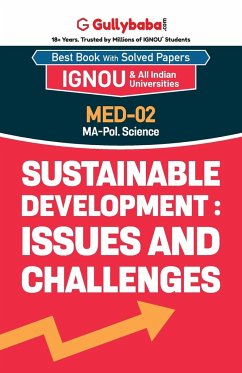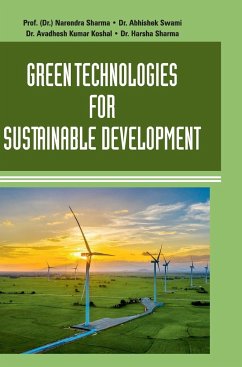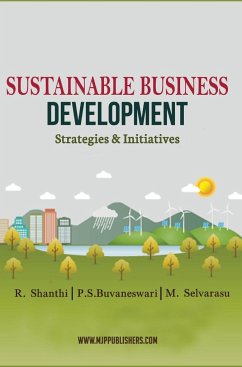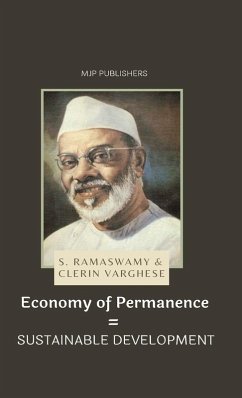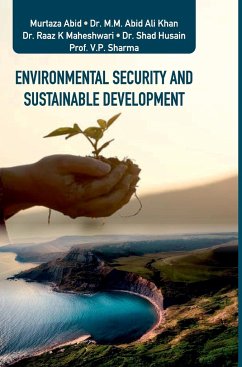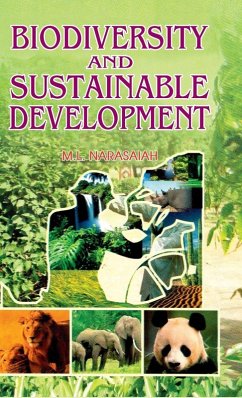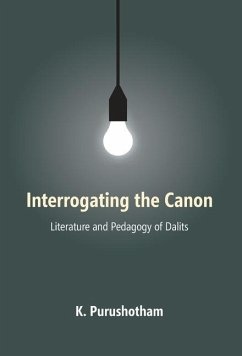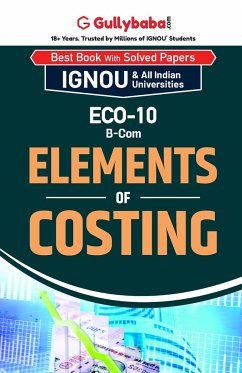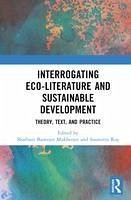
Gebundenes Buch
Interrogating Eco-Literature and Sustainable Development
Theory, Text, and Practice
Herausgeber: Mukherjee, Sharbani Banerjee; Roy, Soumitra
Versandkostenfrei!
Versandfertig in 1-2 Wochen

PAYBACK Punkte
76 °P sammeln!




This book examines the issues of ecological crisis and sustainable development through critical reading of literary texts.
Sharbani Banerjee Mukherjee is Associate Professor of English in the Postgraduate Department of English at Trivenidevi Bhalotia College, Raniganj, West Bengal, India. An alumnus of Visva Bharati, Santiniketan, her PhD thesis was on Lawrence Durrell's The Alexandria Quartet. Her areas of interest include American literature, post-fifties British literature, Postcolonial Studies, Partition literature, Ecocriticism and Gender Studies. She has co-edited The American Novel from Hawthorne to Heller: Cultural Contexts and Critical Perspectives (2019). She is Associate Editor of Literary Oracle, journal of the Department of English, Berhampur University, Odisha. Soumitra Roy is Associate Professor of English at Kazi Nazrul Islam Mahavidyalaya, Asansol, West Bengal, India, and has a teaching experience of over 21 years. He is an alumnus of Burdwan University, West Bengal. His areas of interest include postcolonial studies, film studies, and sports literature. His publications include "Consciousness of a Modern Indian Nation: Analysing Gender Violence from New Delhi to Kamduni". He is also a reviewer of Literary Oracle.
Produktdetails
- Verlag: Routledge India
- Seitenzahl: 230
- Erscheinungstermin: 17. Mai 2023
- Englisch
- Abmessung: 240mm x 161mm x 17mm
- Gewicht: 514g
- ISBN-13: 9781032206653
- ISBN-10: 1032206659
- Artikelnr.: 67400691
Herstellerkennzeichnung
Libri GmbH
Europaallee 1
36244 Bad Hersfeld
gpsr@libri.de
Für dieses Produkt wurde noch keine Bewertung abgegeben. Wir würden uns sehr freuen, wenn du die erste Bewertung schreibst!
Eine Bewertung schreiben
Eine Bewertung schreiben
Andere Kunden interessierten sich für


